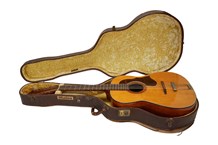That is the question posed by a newly published report that explores some of the issues independence might present for both Scottish and UK owners of art and cultural heritage.
Art, Tax & the Scottish Referendum was written for Pall Mall Art Advisors by Turcan Connell, a private client law firm with substantial North-South clientele.
Neither the Yes Scotland or the Better Together campaigns has made any clear statement about the way in which they will approach the taxation of capital following the referendum.
There have already been references in the press regarding the future of art held in 'national' collections North and South of the Border. Do the Lewis chessmen in the British Museum belong in Scotland or the Bridgewater Collection of the National Galleries of Scotland in England? If works of art were deemed to belong more to the patrimony of one country than the other, then perhaps some sort of division process may be desirable.
Tax Exemptions
But what happens, for example, to objects that have been put into Scottish galleries and museums through existing statutory schemes which provide exemptions or relief from capital taxation such as Conditional Exemption, Acceptance in Lieu or the Cultural Gifts Scheme?
Under such arrangements, designed to encourage donations of works of art of 'national' importance to 'national' institutions in return for a tax incentive, there is typically a requirement for such objects to remain within the United Kingdom, otherwise the tax deferred by HMRC may become payable.
"It is, on the face of the matter, possible that, if Scotland were to separate from the United Kingdom, current conditionally-exempt items would be forced into breach due to Scotland no longer forming part of the United Kingdom."
In this worst-case scenario "there would be very large tax liabilities for unsuspecting parties - particularly when the conditional exemption was given in relation to an estate duty charge which could be as high as 80% of the value of the property". Uncertainty also surrounds the position of collectors who own assets in both Scotland and the rest of the UK and currently loan them to cross-border institutions.
While the report suggest a pragmatic solution may be found - "It is difficult to imagine why the Government would remove reliefs which are intended to encourage individuals to donate culturally significant assets" - it questions if the smaller national balance sheet of an independent Scotland would be able to afford the status quo. Would Scotland be forced to withdraw or significantly reduce the scope of the Government Indemnity Scheme - the mechanism by which significant works of art can be publicly displayed in the UK without the expense of commercial insurance policies?
Loaning Issues
Under the terms of the National Heritage Act 1980, all museums, galleries and libraries that are funded by local authorities and universities are eligible for the scheme, without which the costs of displaying works of art would be prohibitive. It is the Indemnity Scheme that makes it possible for collectors owning significant works of art to loan them to museums and galleries.
The report concludes that, whatever the outcome of the Referendum, some form of change on these issues is coming.
Even in the event of a 'no' vote it looks increasingly likely that 'devo-max' would allow Scotland increased powers in relation to taxation and spending. As such, the likelihood is that there will be a divergence between Scotland and the rest of the UK in the way in which and the rates at which taxation applies.





